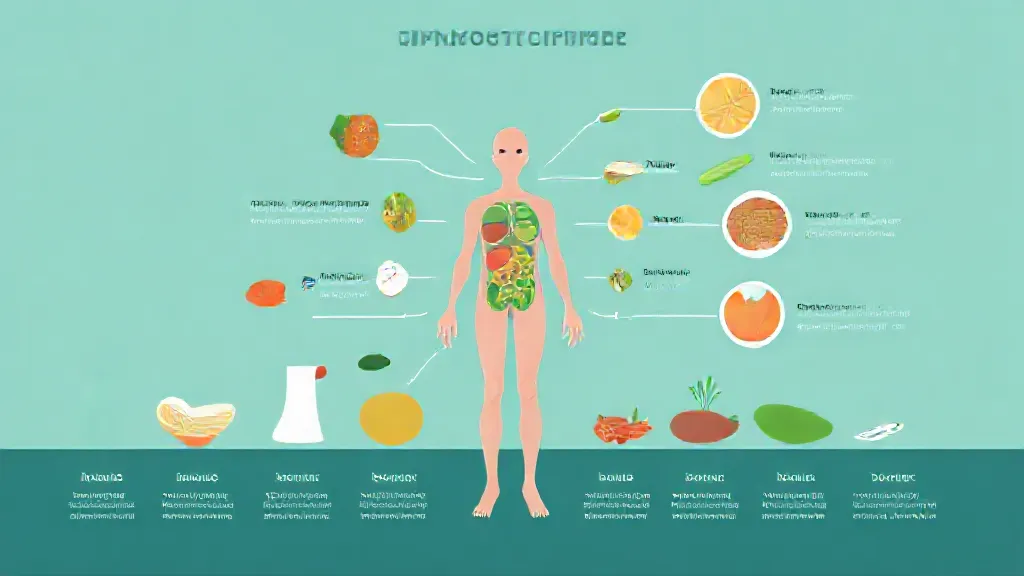Essential nutrients are the building blocks of health, playing critical roles in bodily functions, growth, and development. When the body lacks these nutrients, it can lead to a range of health issues that may affect physical and mental well-being. This article explores the implications of nutrient deficiencies, the specific nutrients involved, and the potential long-term consequences if these deficiencies are not addressed.
The Importance of Essential Nutrients
Essential nutrients include vitamins, minerals, amino acids, and fatty acids that the body cannot synthesize on its own and must obtain from diet. Each nutrient has specific functions; for example, vitamin C is crucial for immune function and collagen synthesis, while iron is vital for oxygen transport in the blood. A well-balanced diet typically provides these nutrients, but various factors such as poor dietary choices, socioeconomic status, and certain medical conditions can lead to deficiencies.
Common Nutrient Deficiencies
Among the most common nutrient deficiencies are iron, vitamin D, calcium, and vitamin B12. Iron deficiency can result in anemia, characterized by fatigue, weakness, and pale skin. Vitamin D deficiency, often due to insufficient sunlight exposure, can lead to bone disorders like rickets in children and osteomalacia in adults.
Calcium deficiency can compromise bone health, increasing the risk of fractures, while vitamin B12 deficiency can cause neurological issues and anemia. Understanding these deficiencies is critical for prevention and treatment.
Physical Symptoms of Nutrient Deficiency
The physical symptoms of nutrient deficiencies can vary widely.
For instance, a lack of vitamin A can lead to vision problems, while insufficient vitamin C can result in scurvy, which manifests as gum disease, fatigue, and skin issues. Similarly, a deficiency in omega-3 fatty acids can lead to dry skin and cognitive decline. Recognizing these symptoms early is essential for prompt intervention and dietary adjustments.
Mental Health Consequences
Nutrient deficiencies are not limited to physical health; they can also significantly impact mental health. For example, omega-3 fatty acids are linked to mood regulation, and their deficiency has been associated with increased risks of depression and anxiety. B vitamins, particularly B6, B12, and folate, are crucial for brain health, and their inadequacy can lead to cognitive decline and mood disorders.
Addressing these deficiencies can improve overall mental well-being.
Long-term Health Risks
The long-term consequences of nutrient deficiencies can be severe and life-altering. Chronic deficiencies can lead to significant health issues such as cardiovascular diseases, osteoporosis, and impaired immune function.
For instance, prolonged vitamin D deficiency can lead to serious bone health problems, while a lack of essential fatty acids can contribute to heart disease. Ensuring adequate nutrient intake is vital for preventing these long-term health risks.
Strategies for Prevention
Preventing nutrient deficiencies involves a multifaceted approach that includes a balanced diet rich in whole foods, regular health check-ups, and, if necessary, supplementation.
Incorporating a variety of fruits, vegetables, whole grains, lean proteins, and healthy fats can help meet nutritional needs. Additionally, public health initiatives aimed at educating communities about nutrition can play a significant role in reducing deficiency rates.
The Role of Healthcare Providers
Healthcare providers play a crucial role in identifying and managing nutrient deficiencies.
Regular screenings and blood tests can help detect deficiencies before they lead to serious health issues. Nutritionists and dietitians can provide personalized dietary recommendations based on individual needs, helping to ensure that patients receive the essential nutrients necessary for optimal health.
Conclusion: The Path to Nutritional Awareness
In conclusion, understanding the importance of essential nutrients and the consequences of their deficiencies is vital for maintaining health and preventing disease.
By prioritizing a nutrient-rich diet and seeking professional guidance when needed, individuals can enhance their overall well-being and reduce the risk of health complications associated with nutrient deficiencies. Awareness and education about nutrition are key components in fostering a healthier society.
